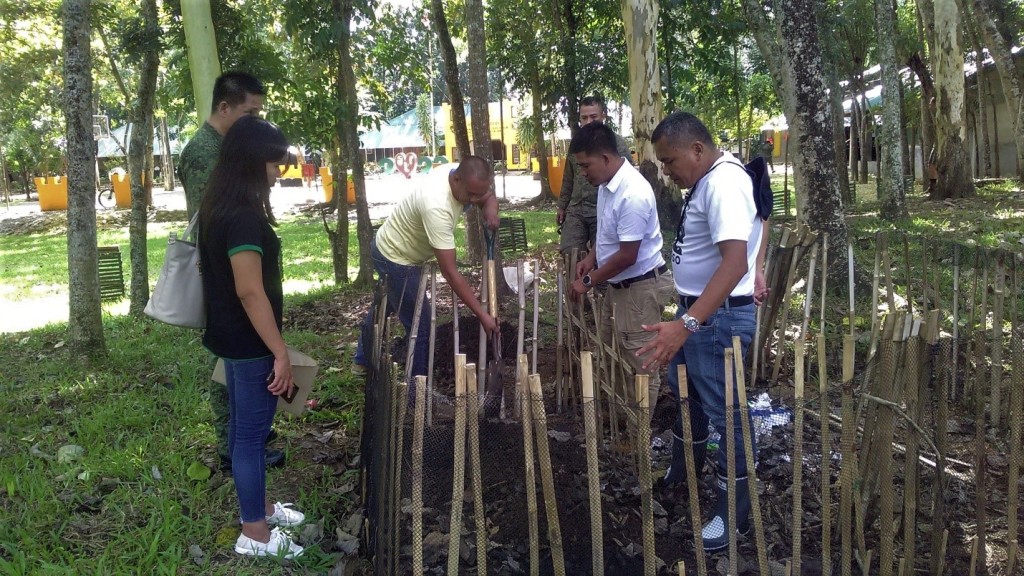Documented by: Lorela V. Locsin – FSN Senior Researcher
The Office of the Presidential Adviser on the Peace Process (OPAPP) initiated an activity for the rebel returnee to be trained together with the Army in Organic Agriculture. Last November 11 to 12, 2019 at Central Philippines State University (CPSU), Hinobaan Campus, together with their Extension and Project Coordinator, Ms. Joe-an Escobar, made this very meaningful training successful.
The two-day trainor’s training ended with the taking home of citronella, “night crawler” for their “vermi compost”, fruiting bag for their start of oyster mushroom, and a certificate for their participation. These take home and the technical knowledge will be the start for their livelihood project towards sustainable agriculture. The messages from the participants; CPSU-Hinobaan Officials; the Program Coordinator of OPAPP; and the challenging words from their trainer, and an advocate of organic agriculture to continue what is being started in this training.
Among these challenges to note are:
- Use the non-chemical;
- Go into natural farming;
- Condition your mind;
- Practice Sustainable farming;
- To leave the next generation a good quality of soil; and
- Continue the partnership through this training
With these challenging words, the participants clearly and absolutely YES.
It is a privileged to witness this happening that the military together with the six rebel returnee become classmates for two days training. That, through the OPAPP the government provided new beginning among the rebel returnee to start a new life. And in this training, they choose it to be into Organic Farming.

Though the two groups benefited from the training that they could apply in their different camps or personal lives, but the essence of bringing them together as classmates was beyond this fruitful technical learning.
I may not able to witness the whole two days activity, but I am still thankful that I was able to attend the last day of the training. The trainer shared that the first day was theory and practical activity on mushroom propagation and “vermi” composting. And on the second day, I witnessed that the attendees, apart from their status, stand on the same and equal ground to actually put the mushroom spawn into a fruiting bag that they prepared on the previous day. They forget their previous differences on these moments of their lives.
They are holding the pens, paper, “vermi”, mushroom spawn, and fruiting bag, and not guns. They are listening not to their commander, but to their instructor of organic farming. They are strategizing not to fight their enemies, but how to learn the sustainable way of living.The master of the program encouraged further the participants and to help the spirit of organic farming live in them when they parted from this training the three letters “OMV”. It is OMV because it is Organic Farming, Mushroom and “Vermi” Composting.
According to Ma’am Joe-an Escobar it was not the first time that she trained these technology to the military. Month before, a camp at Himamaylan, Negros Occidental undergone the same and they are about to harvest their mushroom. True enough; taking this good opportunity and collaboration, the CPSU team led by their President, Mr. Aladino Moraca, also an organic agriculture advocate visited the camp to witness the success of the training and to strengthen the partnership of CPSU and the Armed Forces. Words appreciations were exchanged among leaders (CPSU & Military) and the plans to be done to further this beginning.
A symbol of commitment to the delivery of technology, the CPSU President wanted to enhanced what was the current state of “vermi” composting and promised to deliver within the day additional five kilos of “African night crawler” beside a very hectic schedule. The President himself together with the CPSU team practically demonstrated how to properly do and care this “vermi” composting. The sincerity in advancing the sustainable agriculture is very apparent among them.




Leave a Reply